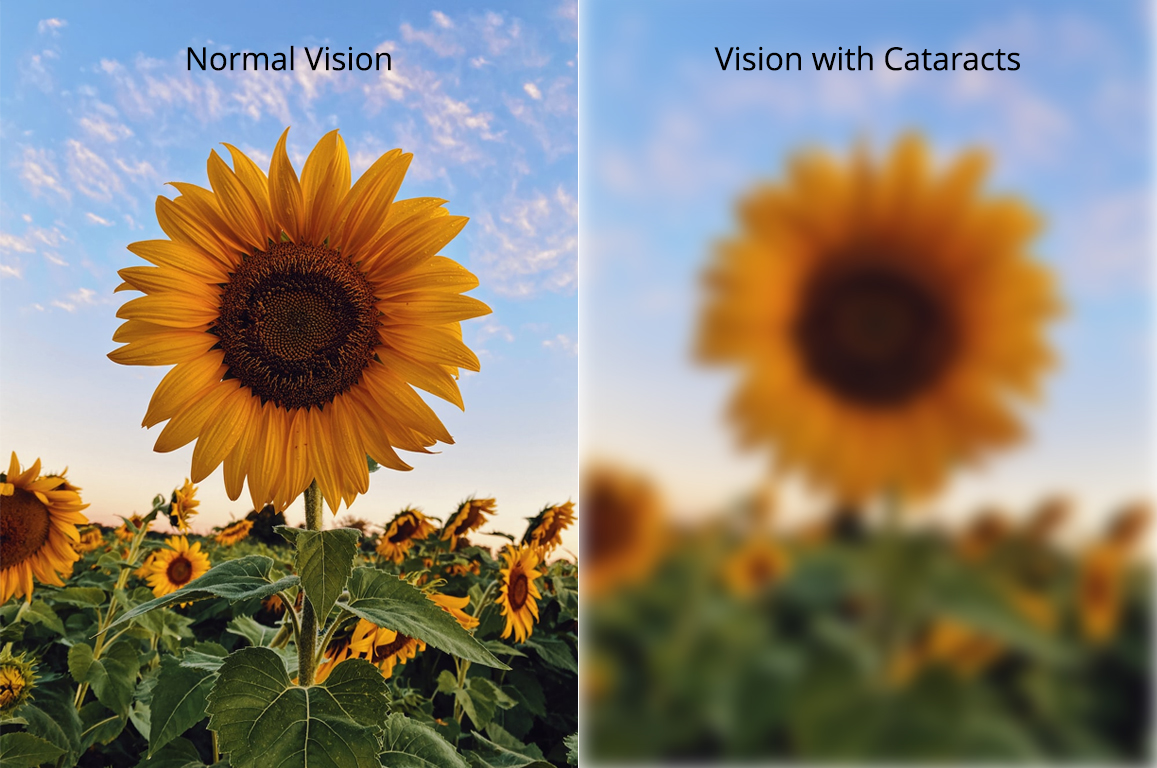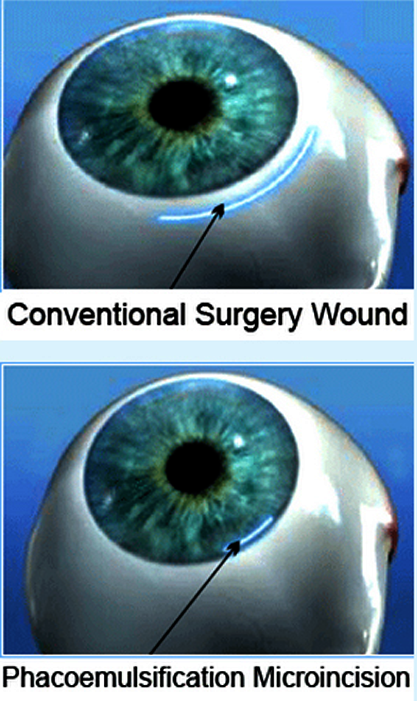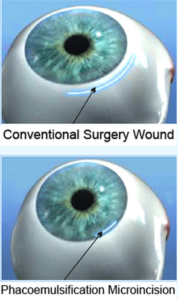
A cataract is a clouding of the normally clear lens of your eye. For people who have cataracts, seeing through cloudy lenses is a bit like looking through a frosty or fogged-up window. Clouded vision caused by cataracts can make it more difficult to read, drive a car (especially at night) or see the expression on a friend's face.

Most cataracts develop slowly and don't disturb your eyesight early on. But with time, cataracts will eventually interfere with your vision. At first, stronger lighting and eyeglasses can help you deal with cataracts. But if impaired vision interferes with your usual activities, you might need cataract surgery.


We use the latest phacoemulsification technique, which allows for smaller incisions and faster healing. This advanced method breaks up the cloudy lens using ultrasound waves and removes it through a tiny incision.
We offer a comprehensive range of premium intraocular lenses to suit your lifestyle and visual needs:

Provides excellent vision at one distance (usually far). Most common and covered by insurance. May need reading glasses.
Distance, intermediate and near focus.Reduces dependence on glasses. Great for active lifestyles.
Corrects astigmatism along with cataract. Provides crisp, clear vision at distance. Premium option for astigmatic patients.
Provides continuous range of vision from far to intermediate. Reduced halos and glare. Latest technology.
.jpg)
Our surgeons have performed over 50,000+ successful cataract surgeries with excellent outcomes.
We use the most advanced phacoemulsification equipment and premium IOLs for best results.
Our hospital meets the highest standards of patient safety and quality care.
Micro-incision surgery means faster healing, minimal discomfort, and return to normal activities.
No, cataract surgery is not painful. The procedure is performed under Tropical anesthesia . You will be awake but completely comfortable. Most patients report feeling only slight pressure during the surgery, but no pain. After surgery, mild discomfort or grittiness is normal and easily managed with prescribed eye drops.
The actual surgery typically takes only 5-10 minutes per eye. However, you should plan to be at the hospital for 2-3 hours to allow time for pre-operative preparation and post-operative recovery observation.
Most patients can resume normal daily activities within 24 hours. However, you should avoid:
Always follow your surgeon's specific instructions for best results.
This depends on the type of intraocular lens (IOL) you choose:
Your surgeon will discuss the best IOL option for your lifestyle during consultation.
No, cataracts cannot come back because the natural lens has been removed. However, some patients (10-20%) may develop a condition called "posterior capsule opacification" (PCO) months or years after surgery. This is sometimes called a "secondary cataract." It can be easily treated with a quick, painless laser procedure (YAG capsulotomy) in the office, restoring clear vision immediately.
Cataract surgery has a success rate of over 99% and is one of the safest and most effective surgeries performed today. At Brar Eye Hospital, we have performed over 50,000 successful cataract surgeries with excellent visual outcomes and patient satisfaction.
Schedule your cataract consultation today and take the first step toward clearer vision!
Book Your Consultation